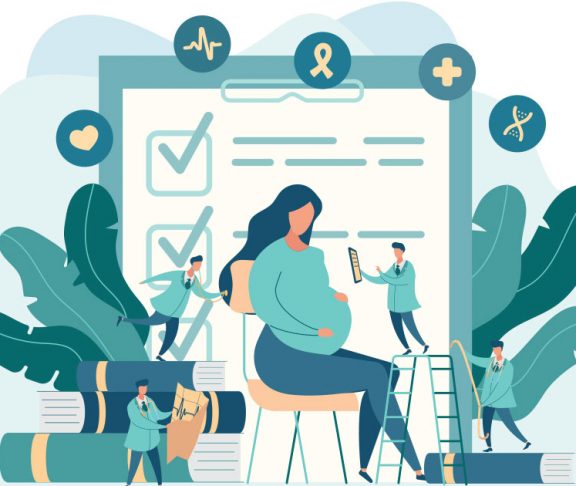Crohn’s disease and ulcerative colitis, collectively known as inflammatory bowel disease (IBD), are chronic conditions requiring ongoing monitoring and management to prevent debilitating symptoms that can affect every aspect of a person’s life.
During this pandemic, helping IBD patients proactively manage their disease is critical. The limitations of social distancing and a health care system in flux, however, present obvious challenges. Thankfully, health care providers and patient support organizations are stepping up to make navigating this complicated landscape as painless as possible.
Telemedicine innovations provide security in a time of uncertainty
“In the era of COVID-19, it’s doubly important for us to be regularly monitoring our patients, especially those with more severe disease, because many of them are on medications that have an impact on the body’s immune response,” says Dr. Hillary Steinhart, a gastroenterologist at Mount Sinai Hospital’s Inflammatory Bowel Disease Centre. “At the same time, we’re of course trying to limit face-to-face contact during this pandemic, which has created a unique challenge.”
One powerful response to this need has been an expansion of services into online, remote, and virtual spaces. Health care providers like Dr. Steinhart are seeing patients in virtual clinics rather than physical ones, and patient groups like Crohn’s and Colitis Canada are taking their educational and support initiatives online in an unprecedented way. “There are so many important questions to address that we’re hosting Crohn’s and colitis webinars every Thursday night where health care experts and specialists can provide answers and guidance,” says Mina Mawani, President and CEO of Crohn’s and Colitis Canada. “We’ve received feedback that this has been valuable at calming anxiety, uncertainty, and fear in this stressful time.”
With the demands of this pandemic, the health care system is being forced to adapt very quickly. And doctors are recognizing that some of these unplanned changes could turn out to have lasting benefits. “Virtual care developments that were planned for months down the road have suddenly been happening over the course of weeks,” says Dr. Eric Benchimol, Associate Professor of Pediatrics at the University of Ottawa. “If there’s any silver lining to this situation, I think it’s that it’s pushed us to look at new ways of providing care to patients, and that’s always a good thing.”
In the era of COVID-19, it’s doubly important for us to be regularly monitoring our patients, especially those with more severe disease, because many of them are on medications that have an impact on the body’s immune response.
Dr. Hillary Steinhart, gastroenterologist at Mount Sinai Hospital’s Inflammatory Bowel Disease Centre.
Empowering patients helps health care outcomes
Within this new care paradigm, the value of placing more control in the hands of the patients themselves is also being elevated and acknowledged. Important monitoring tools, like the fecal calprotectin test — which can detect early signs of inflammation before an IBD flare occurs — are being made available in at-home versions, such as the IBDoc. Meanwhile, new apps like Crohn’s and Colitis Canada’s MyGut are helping patients monitor their own disease and become a more integral part of their own care team.
While tools like these are helping patients take a more proactive role in their disease management, it’s still essential that all treatment decisions be made with the advice of a health care provider. “Right now, a lot of patients who are on an effective treatment, especially if those treatments are biologics or immune suppressant therapies, are having concerns about continuing to take those medications,” says Dr. Steinhart. “All experts are advising patients not to stop an effective treatment without talking to their doctor, which they can do virtually. The risk of a severe IBD flare and the consequences of that greatly outweigh any small potential increased risk from staying on a treatment as long as the patient doesn’t have signs or symptoms of an infection such as COVID-19.”
Doctors are advising patients that, even if their treatment requires visiting a clinic, measures are in place to ensure that it is safe to do so. “There are many factors that go into treatment decisions, but in these times of social distancing, we are seeing a lot of advantages for treatments that can be done at home,” says Dr. Benchimol. “And patient services programs are really stepping up and providing useful training resources by videoconference. Crohn’s and Colitis Canada has been important in advocating to ensure that patients and doctors have a choice of the different treatment options.”
In the end, the main message that all the experts want to make clear is that the lockdown isn’t a reason to let your IBD go unmanaged.
“We’re still open for business and we can provide help,” says Dr. Benchimol. “Don’t let yourself get worse.”
This article was made possible with support from AbbVie.


